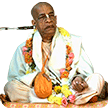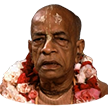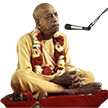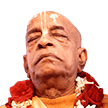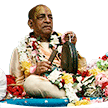Sun-god - a glorious personality: Difference between revisions
(Created page with "Category:Glorious Personalities Category:Glorious Personalities from Bhagavad Gita Category:Glorious Personalities from Srimad Bhagavatam Category:Glorious Perso...") |
No edit summary |
||
| Line 11: | Line 11: | ||
{{Personalitiesnav}} | {{Personalitiesnav}} | ||
<!----------------- BEGIN STANDARD HEADING -----------------> | <!----------------- BEGIN STANDARD HEADING -----------------> | ||
Srila Prabhupada's books, lectures, conversations and letters reveal the qualities of this glorious personality as seen in the Vaniquotes '''[[Vaniquotes:Category: | Srila Prabhupada's books, lectures, conversations and letters reveal the qualities of this glorious personality as seen in the Vaniquotes '''[[Vaniquotes:Category:Sun-god|Sun-god]]''' category. An introduction from his books is given below in the following 10 quotes. | ||
<!----------------- END STANDARD HEADING -----------------> | <!----------------- END STANDARD HEADING -----------------> | ||
---- | ---- | ||
== Quotes from Srila Prabhupada's | == Quotes from Srila Prabhupada's books == | ||
<!----------------- edit quote boxes below this line -----------------> | <!----------------- edit quote boxes below this line -----------------> | ||
{{VaniQuotebox| | {{VaniQuotebox|A diseased person is recommended to worship the sun-god; a person wanting education may worship the goddess of learning, Sarasvati; and a person wanting a beautiful wife may worship the goddess Uma, the wife of Lord Siva|A person wanting some particular thing may worship such and such a demigod. For example, a diseased person is recommended to worship the sun-god; a person wanting education may worship the goddess of learning, Sarasvatī; and a person wanting a beautiful wife may worship the goddess Umā, the wife of Lord Śiva. '''(Bhagavad-gītā 7.21)'''}} | ||
{{VaniQuotebox| | {{VaniQuotebox|A lusty person does not know that all his material activities are being observed by different demigods, especially the sun-god, and are being recorded for the karma of one's next body|As one looks forward to this opportunity, his eyes are overwhelmed by the beauty of his wife. Thus it is said that the whirlwind covers the eyes with dust. Such a lusty person does not know that all his material activities are being observed by different demigods, especially the sun-god, and are being recorded for the karma of one's next body. Astrological calculations are called jyoti-śāstra. Because the jyoti, or effulgence, in the material world comes from the different stars and planets, the science is called jyoti-śāstra, the science of the luminaries. By the calculations of jyoti, our future is indicated. '''(Śrīmad-Bhāgavatam 5.13.4)'''}} | ||
{{VaniQuotebox| | {{VaniQuotebox|All these planetary systems (Bhuloka, Bhuvarloka, and Svargaloka) are controlled by Savita, the sun-god|Above the Bhūloka planetary system is Bhuvarloka, and above that is Svargaloka, the heavenly planetary system. All these planetary systems are controlled by Savitā, the sun-god. By chanting the Gāyatrī mantra just after rising early in the morning, one worships the sun-god. '''(Śrīmad-Bhāgavatam 5.1.31)'''}} | ||
{{VaniQuotebox| | {{VaniQuotebox|Although Maharaja Priyavrata devised a very powerful chariot as brilliant as the sun, he had no desire to compete with the sun-god, for a Vaisnava never wants to supersede another Vaisnava|Although Mahārāja Priyavrata devised a very powerful chariot as brilliant as the sun, he had no desire to compete with the sun-god, for a Vaiṣṇava never wants to supersede another Vaiṣṇava. His purpose was to give abundant benefits in material existence. Śrīla Viśvanātha Cakravartī Ṭhākura remarks that in the months of April and May the rays of Mahārāja Priyavrata's brilliant sun were as pleasing as the rays of the moon, and in October and November, both morning and evening, that sun provided more warmth than the sunshine. '''(Śrīmad-Bhāgavatam 5.1.30)'''}} | ||
{{VaniQuotebox| | {{VaniQuotebox|Any individual living being can become the sun-god or even Brahma or any other god in the upper planetary system by a higher grade of pious work, and similarly one becomes controlled by the higher demigods by lower grades of fruitive activities|Any individual living being can become the sun-god or even Brahmā or any other god in the upper planetary system by a higher grade of pious work, and similarly one becomes controlled by the higher demigods by lower grades of fruitive activities. So every individual living entity is subject to the supreme control of the Paramātmā, who puts everyone in different positions of the controller and the controlled. '''(Śrīmad-Bhāgavatam 2.10.8)'''}} | ||
{{VaniQuotebox| | {{VaniQuotebox|Different demigods have different powers. The sun-god has the power to cure diseases; the moon-god imbues plants with taste and nutritional or medicinal potency; Goddess Durga gives strength and courage; Goddess Sarasvati bestows learning|Different demigods have different powers. The sun-god has the power to cure diseases; the moon-god imbues plants with taste and nutritional or medicinal potency; Goddess Durgā gives strength and courage; Goddess Sarasvatī bestows learning; Goddess Lakṣmī grants wealth; Goddess Cāṇḍī offers one the opportunity to consume meat and intoxicants, and Gaṇeśa gives success in one's endeavors. '''(Renunciation Through Wisdom, Chapter 2)'''}} | ||
{{VaniQuotebox| | {{VaniQuotebox|Every residential house in Vrndavana was decorated for the worship of the sun-god and the fire-god and for the reception of guests, cows, brahmanas and demigods. Every home was sanctified by lights and incense|Every residential house in Vṛndāvana was decorated for the worship of the sun-god and the fire-god and for the reception of guests, cows, brāhmaṇas and demigods. Every home was sanctified by lights and incense. All over Vṛndāvana there were nice gardens filled with flowers and the sounds of humming bees and singing birds. The lakes were filled with lotus flowers and with ducks and swans. '''(Krsna Book, Chapter 46)'''}} | ||
{{VaniQuotebox| | {{VaniQuotebox|From Bhagavad-gita we get information that Vaivasvata Manu was the son of the sun-god and that his son, Maharaja Iksvaku, ruled this planet earth|From Bhagavad-gītā we get information that Vaivasvata Manu was the son of the sun-god and that his son, Mahārāja Ikṣvāku, ruled this planet earth. Svāyambhuva Manu, however, appears to have been in charge of the entire universe, and he entrusted to his son, Mahārāja Priyavrata, the responsibility for maintaining and protecting all the planetary systems. Dharā-maṇḍala means "planet." This earth, for instance, is called dharā-maṇḍala. Akhila, however, means "all" or "universal." '''(Śrīmad-Bhāgavatam 5.1.22)'''}} | ||
{{VaniQuotebox|If one wants a beautiful wife, he is advised to worship Uma, or goddess Durga. If one wants to be cured of a disease, he is advised to worship the sun-god. All requests for benedictions from the demigods, however, are due to material lust|If one wants a beautiful wife, he is advised to worship Umā, or goddess Durgā. If one wants to be cured of a disease, he is advised to worship the sun-god. All requests for benedictions from the demigods, however, are due to material lust. The benedictions will be finished at the end of the cosmic manifestation, along with those who bestow them. If one approaches Lord Viṣṇu for benedictions, the Lord will give him a benediction that will help him return home, back to Godhead. '''(Śrīmad-Bhāgavatam 6.9.50)'''}} | |||
{{VaniQuotebox|In the beginning of the Treta-yuga the sun-god instructed devotional service to Manu, and Manu in his turn instructed it to Iksvaku for the welfare of the whole human society|The Lord's incarnation Matsya (the gigantic fish) was advented during the beginning of Vaivasvata Manu's reign. He learned the principles of Bhagavad-gītā from his father, Vivasvān, the sun-god, and he reinstructed the same to his son Mahārāja Ikṣvāku. In the beginning of the Tretā-yuga the sun-god instructed devotional service to Manu, and Manu in his turn instructed it to Ikṣvāku for the welfare of the whole human society. '''(Śrīmad-Bhāgavatam 1.12.19)'''}} | |||
<!----------------- edit quote boxes above this line -----------------> | <!----------------- edit quote boxes above this line -----------------> | ||
''' | '''Sun-god - [[Vaniquotes:Category:Sun-god|explore more within this category]]'''. | ||
{{GloriousPersonalitiesTotal}} | {{GloriousPersonalitiesTotal}} | ||
Latest revision as of 07:36, 11 February 2017
INTRODUCTION TEXT TO BE WRITTEN
Srila Prabhupada's books, lectures, conversations and letters reveal the qualities of this glorious personality as seen in the Vaniquotes Sun-god category. An introduction from his books is given below in the following 10 quotes.
Quotes from Srila Prabhupada's books
Sun-god - explore more within this category.
Vanipedia has now over 215 introductory articles compiled from Srila Prabhupada's teachings under the series titled Glorious Personalities. All these articles can be seen in the Table of Content on the right side of this article and also here in this Umbrella Category. Browse through them to relish the breadth and depth of Srila Prabhupada's teachings - There is an attractive personality for everyone.
